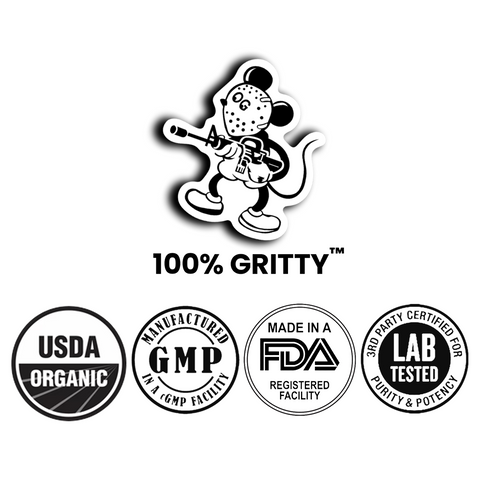CBD oil and hemp oil are two popular products derived from the cannabis plant, but they have different compositions and uses. With the growing interest in these natural remedies, it's important to understand the differences between CBD oil and hemp oil. In this comprehensive guide, we will explore the contrasting characteristics of these oils, including their extraction methods, cannabinoid content, potential benefits, and usage. By gaining clarity on CBD oil and hemp oil, you can make informed decisions about incorporating them into your wellness routine.
Source and Extraction
CBD oil is extracted from the flowers, leaves, and stalks of the hemp plant, specifically bred for high CBD content and low THC levels. The extraction process typically involves using solvents like CO2 or ethanol to separate the desired cannabinoids, including CBD, from the plant material. On the other hand, hemp oil, also known as hemp seed oil, is derived from the seeds of the hemp plant through cold-pressing, similar to other seed oils such as olive or sunflower oil. Hemp oil extraction does not involve the use of solvents and primarily focuses on obtaining the nutrient-rich oil from the seeds.
Cannabinoid Content
CBD oil contains high levels of cannabidiol (CBD), a non-intoxicating compound known for its potential therapeutic benefits. The CBD content can vary depending on the extraction method and the specific product. CBD oil may also contain other cannabinoids, including trace amounts of tetrahydrocannabinol (THC), the psychoactive compound in cannabis. However, reputable CBD oil products comply with legal requirements and contain less than 0.3% THC, ensuring they do not produce intoxicating effects. In contrast, hemp oil does not contain significant levels of CBD or THC. It is primarily composed of healthy fatty acids, vitamins, and minerals, making it a valuable nutritional supplement.
Potential Benefits
CBD oil has gained recognition for its potential therapeutic effects. It interacts with the body's endocannabinoid system (ECS) and various receptors, potentially contributing to pain relief, anxiety reduction, sleep support, and overall well-being. Extensive research and anecdotal evidence suggest that CBD oil may have a broad range of applications in managing certain health conditions. On the other hand, hemp oil's benefits lie in its nutritional profile. It is rich in omega-3 and omega-6 fatty acids, vitamins, and minerals, making it beneficial for skin health, heart health, and promoting a balanced diet.
Usage and Application
CBD oil is commonly used as a sublingual tincture, where a few drops are placed under the tongue and held for a brief period before swallowing. This method allows for efficient absorption into the bloodstream. CBD oil is also available in various forms such as capsules, edibles, topicals, and even vaping products. It offers versatile options for individuals seeking targeted relief or overall wellness support. On the other hand, hemp oil is primarily used as a dietary supplement or added to recipes for its nutritional benefits. It is not typically used for therapeutic purposes but rather as part of a well-rounded diet.
Legal Considerations
The legal status of CBD oil and hemp oil can vary depending on local regulations. In many regions, CBD oil derived from hemp with less than 0.3% THC is legal for both medical and recreational use. However, it's important to research and understand the specific laws and regulations in your jurisdiction. Hemp oil, on the other hand, is generally legal and widely available as a nutritional supplement since it contains no significant levels of CBD or THC.
The Botton Line
In conclusion, CBD oil and hemp oil are distinct products with different compositions and applications. CBD oil is extracted from the hemp plant and contains high levels of cannabidiol, offering potential therapeutic benefits. It is commonly used for pain management, anxiety reduction, sleep support, and overall wellness. On the other hand, hemp oil is derived from hemp seeds and is primarily valued for its nutritional content, rich in fatty acids, vitamins, and minerals. It serves as a nutritional supplement rather than a therapeutic remedy.
Understanding the differences between CBD oil and hemp oil is essential for selecting the right product for your needs. Whether you're seeking potential therapeutic effects or nutritional support, consider your goals, research reputable brands, and consult with healthcare professionals as needed. By making informed choices, you can incorporate CBD oil or hemp oil into your wellness routine and experience their potential benefits.
References:
- Pamplona FA, et al. Potential Clinical Benefits of CBD-Rich Cannabis Extracts Over Purified CBD in Treatment-Resistant Epilepsy: Observational Data Meta-analysis. Front Neurol. 2018;9:759.
- Rodriguez-Leyva D, et al. The cardiovascular effects of flaxseed and its omega-3 fatty acid, alpha-linolenic acid. Can J Cardiol. 2010;26(9):489-496.
- World Health Organization (WHO). Cannabidiol (CBD) Pre-Review Report. 2017.
- Callaway J, et al. Efficacy of dietary hempseed oil in patients with atopic dermatitis. J Dermatolog Treat. 2005;16(2):87-94.






Comments (0)
There are no comments for this article. Be the first one to leave a message!